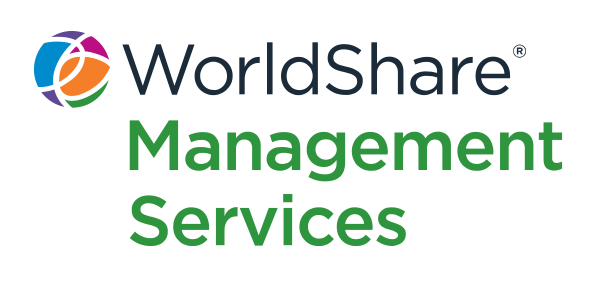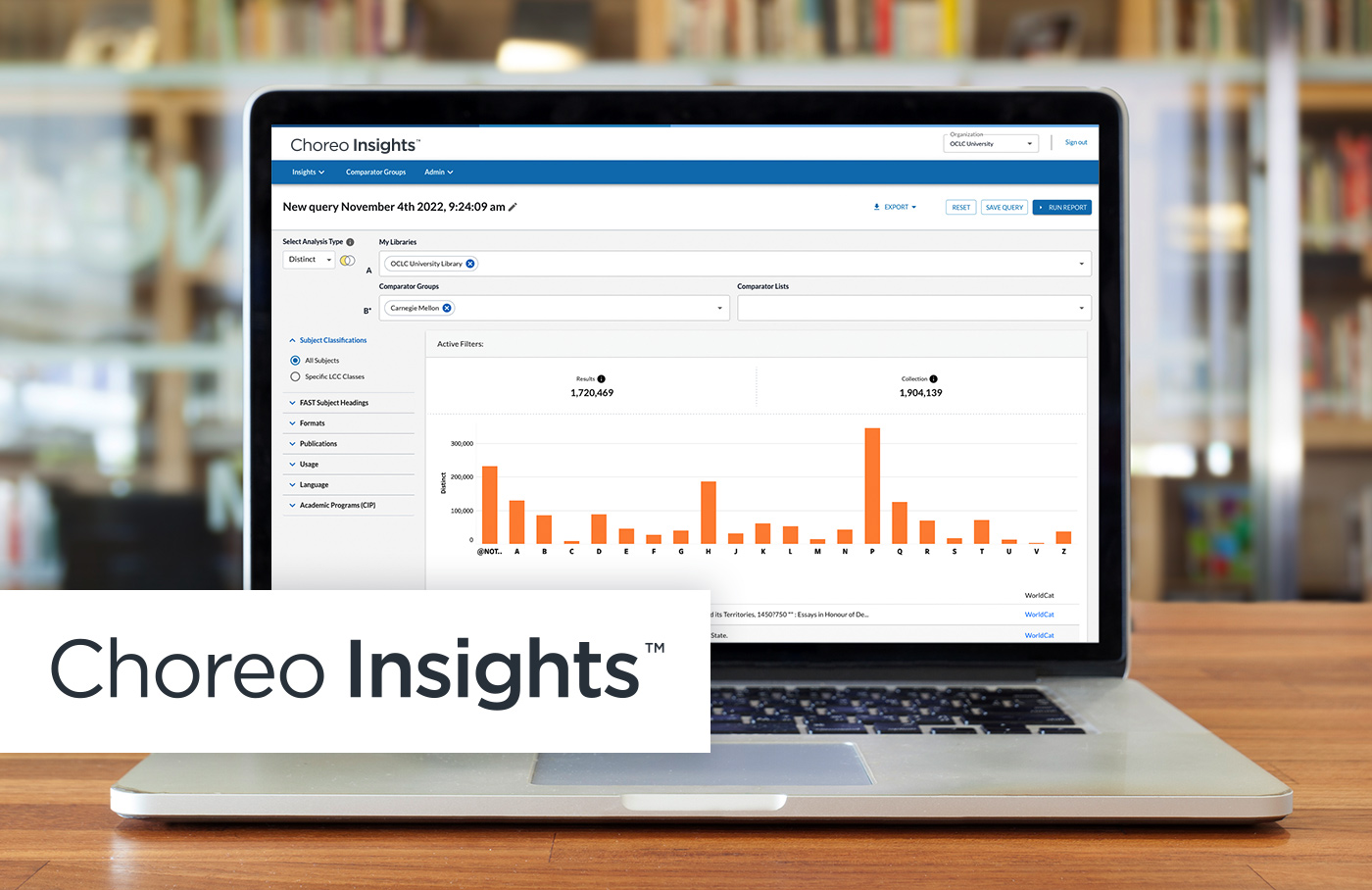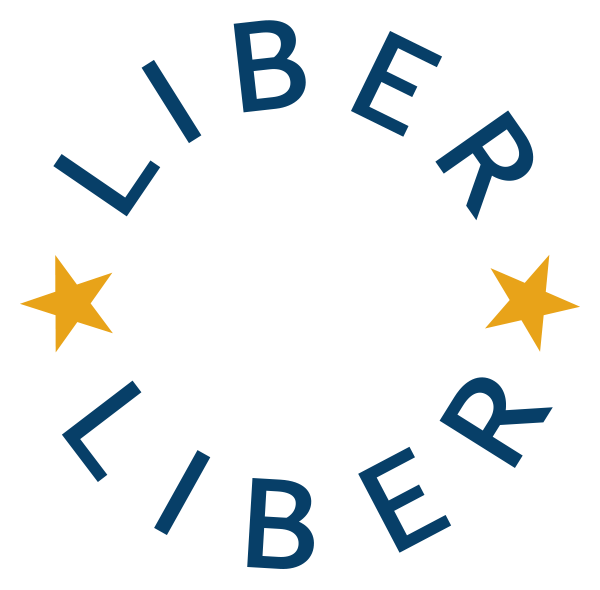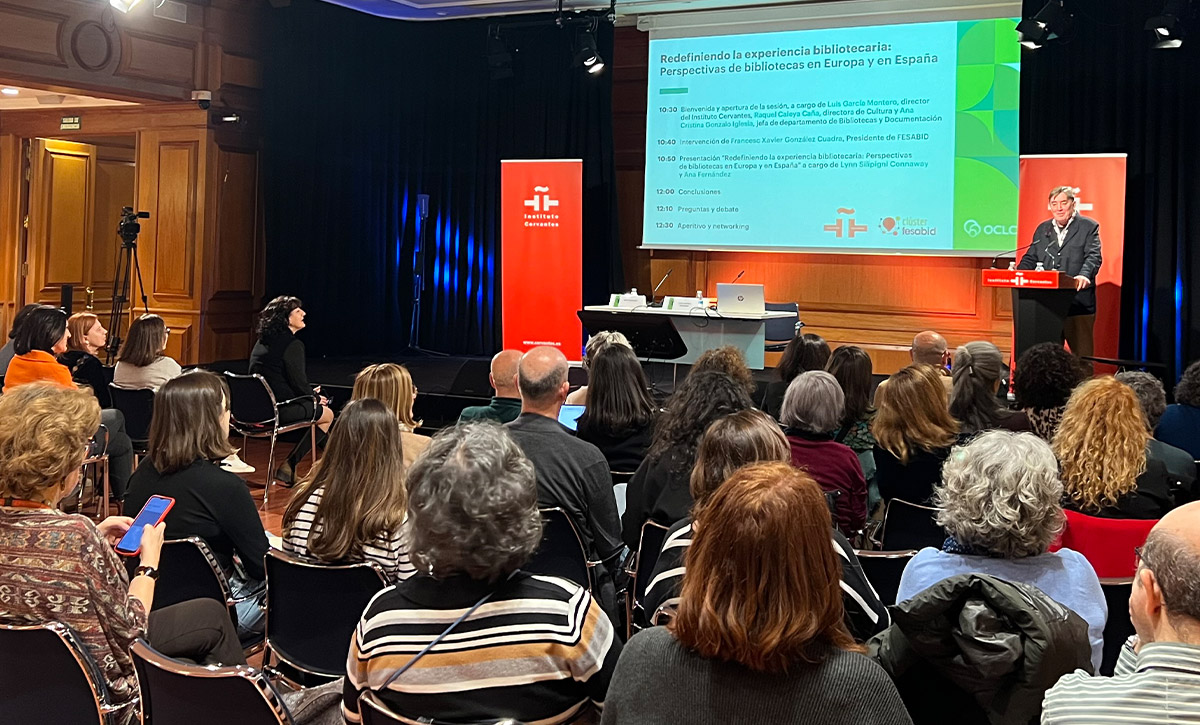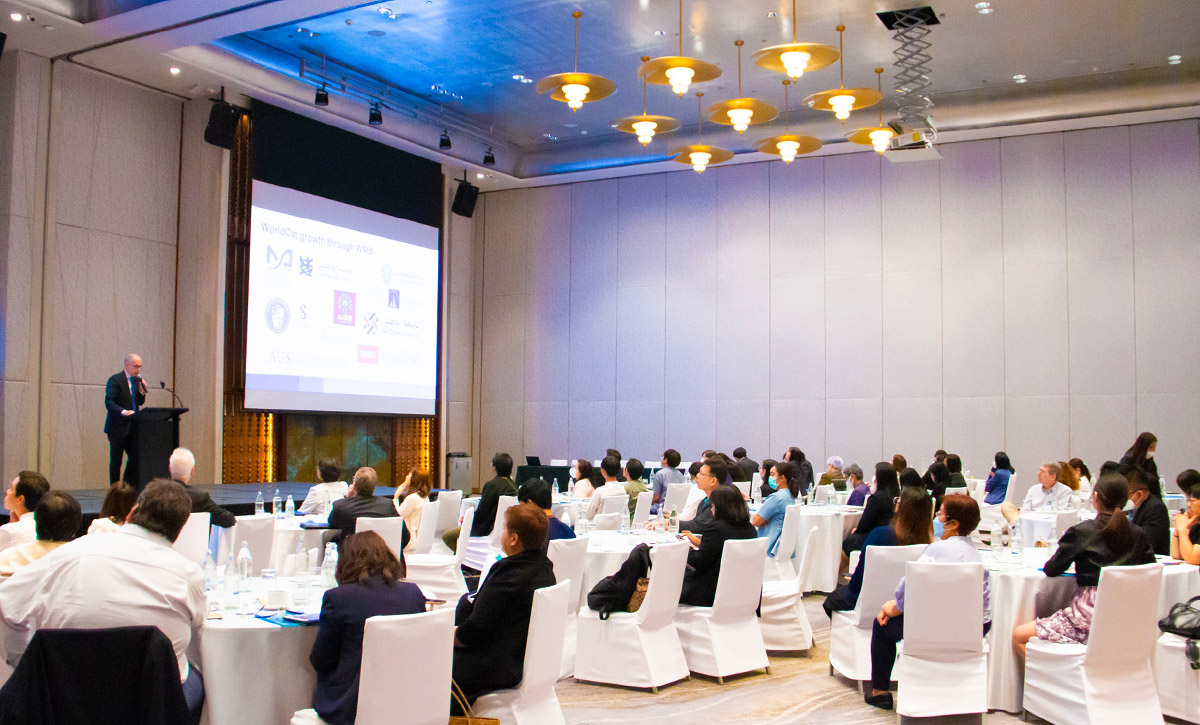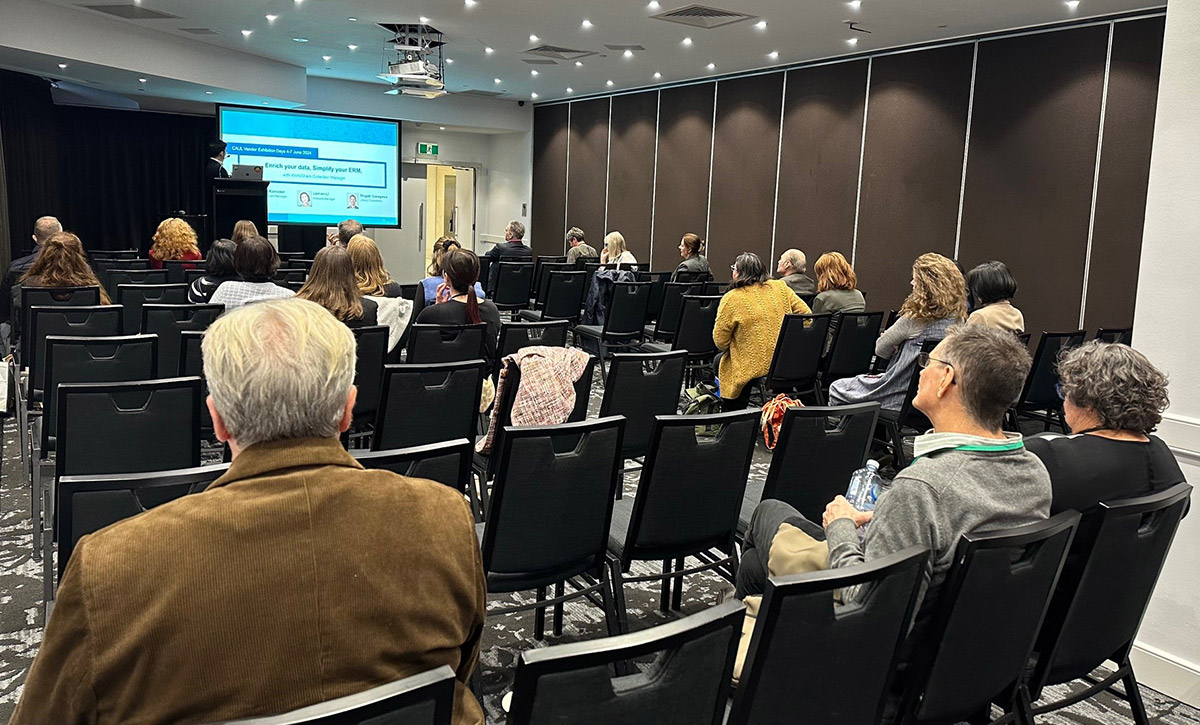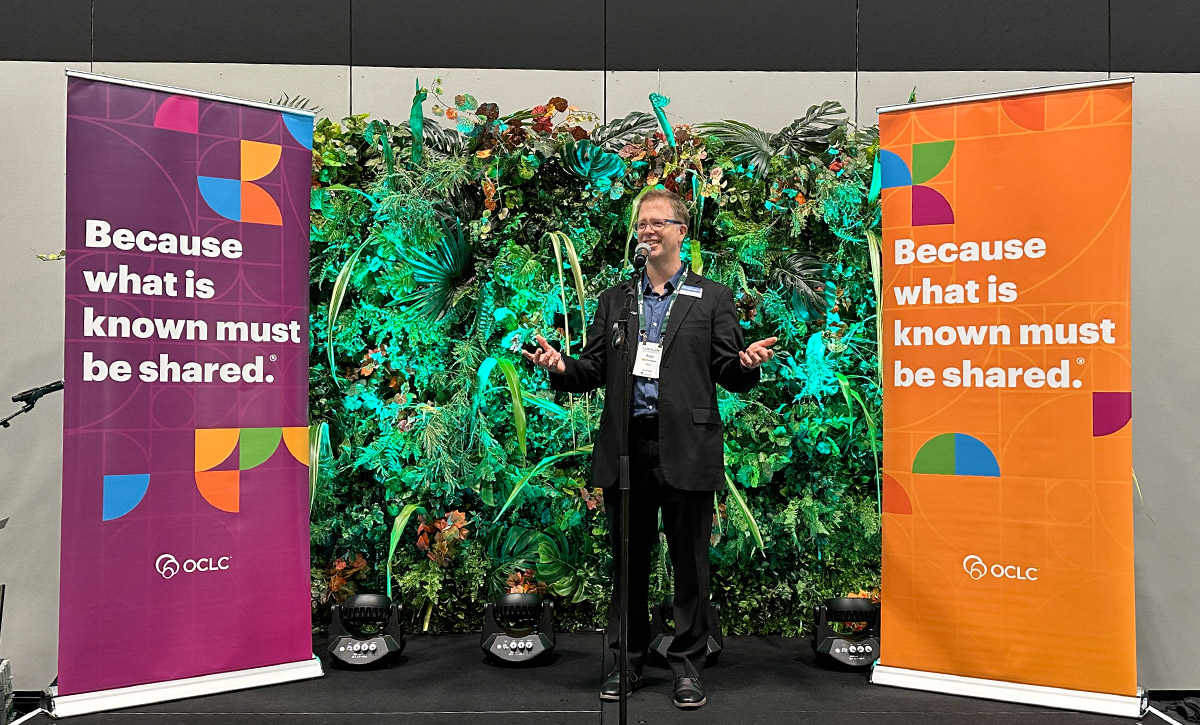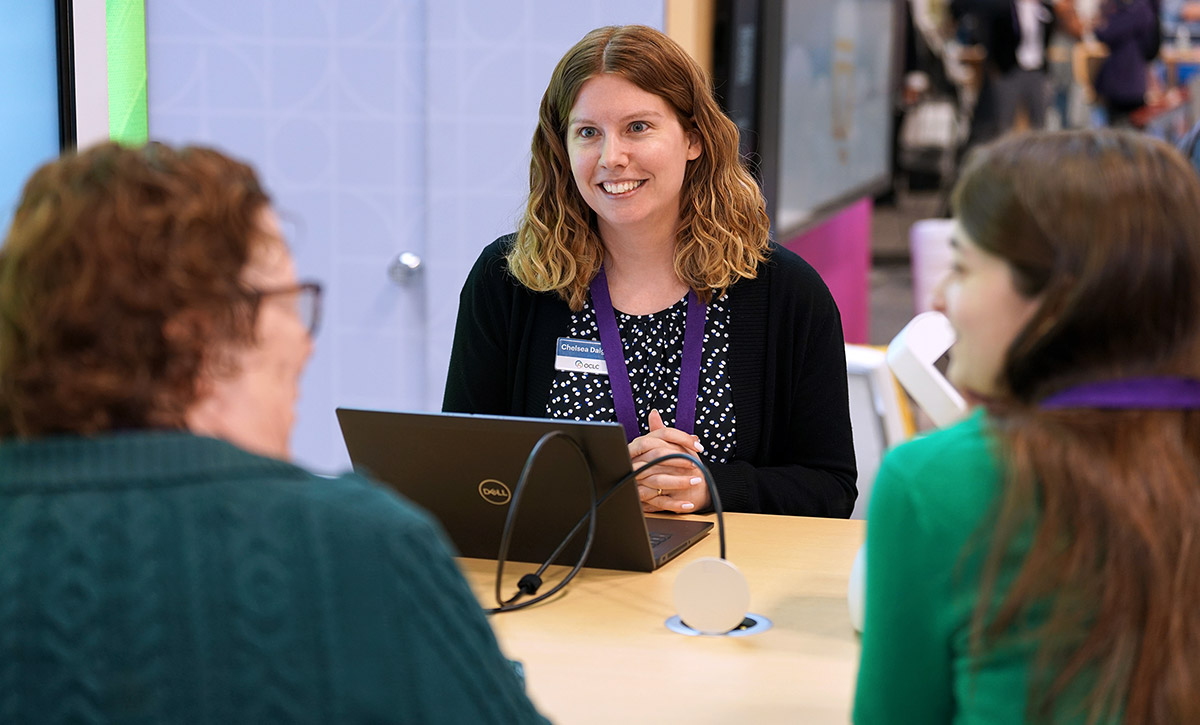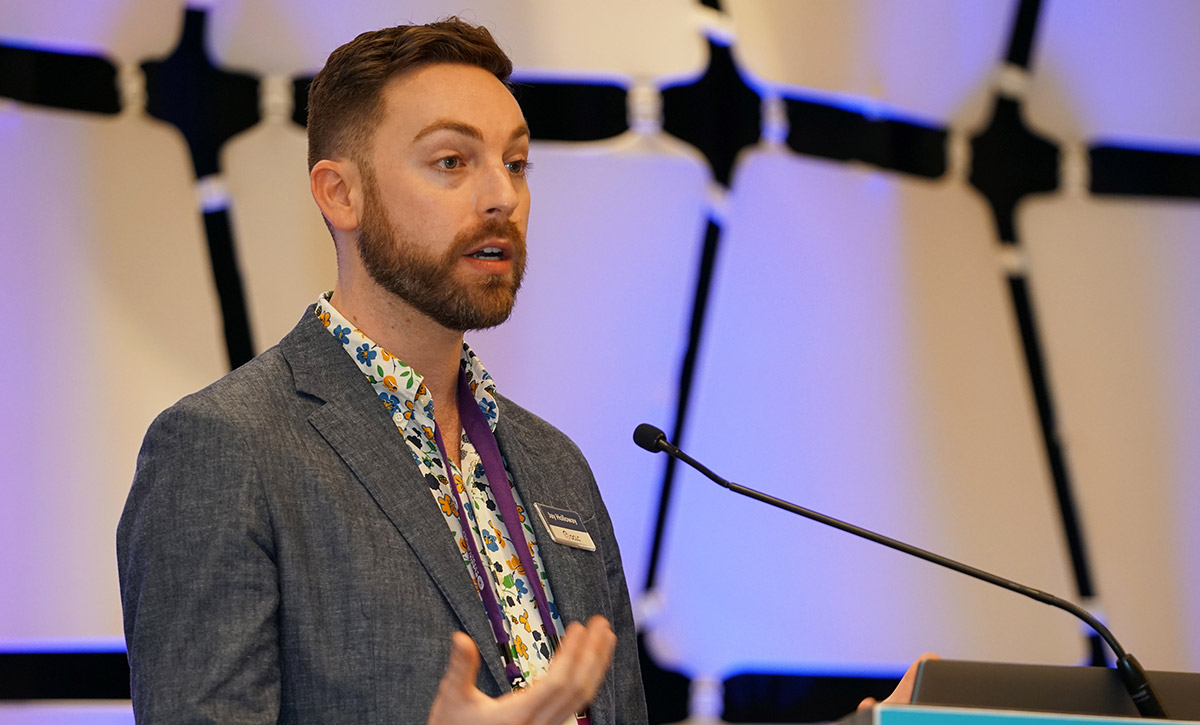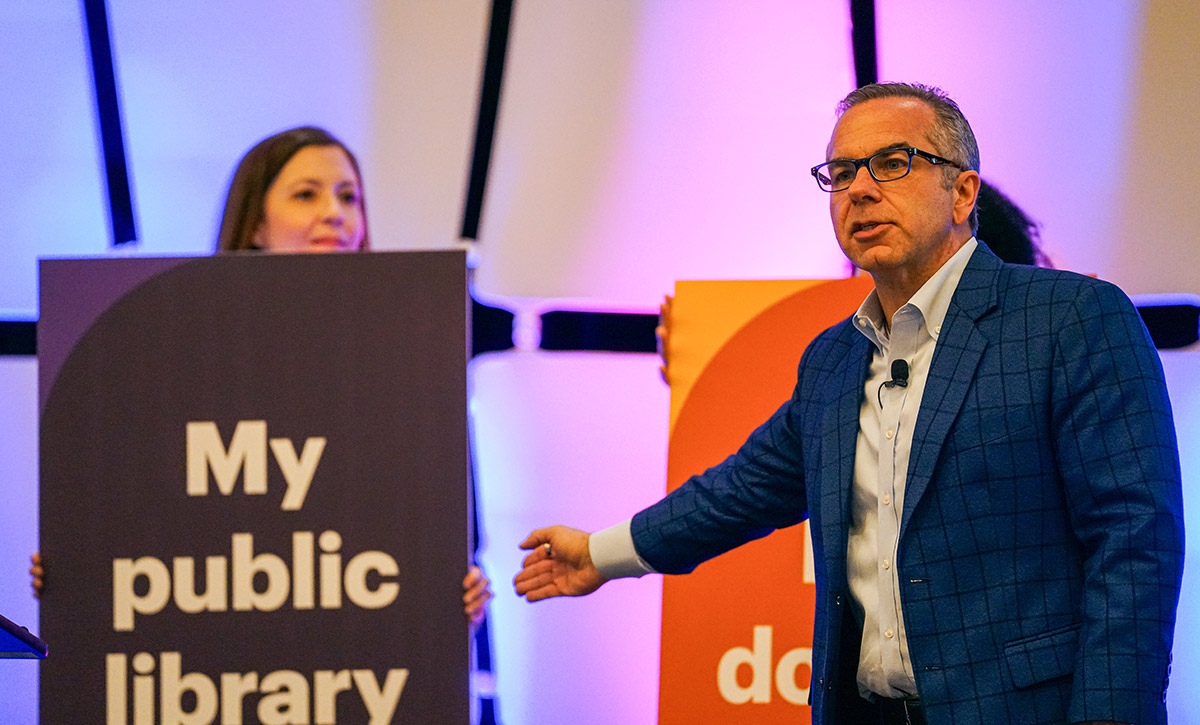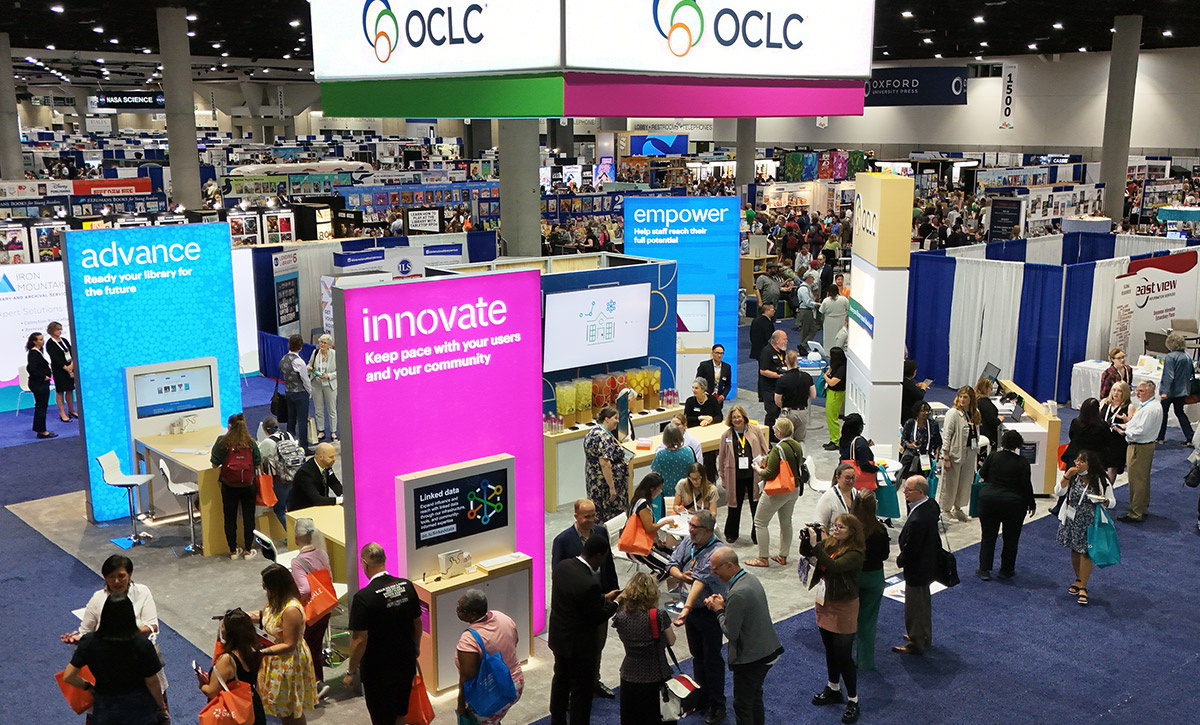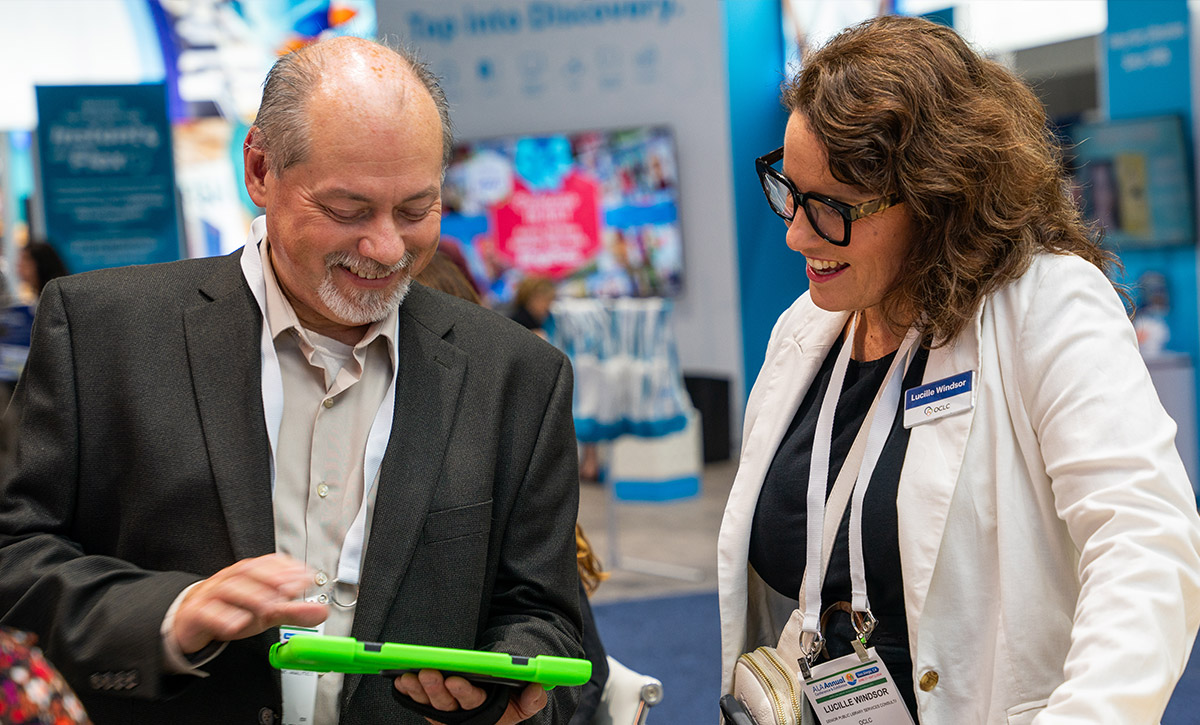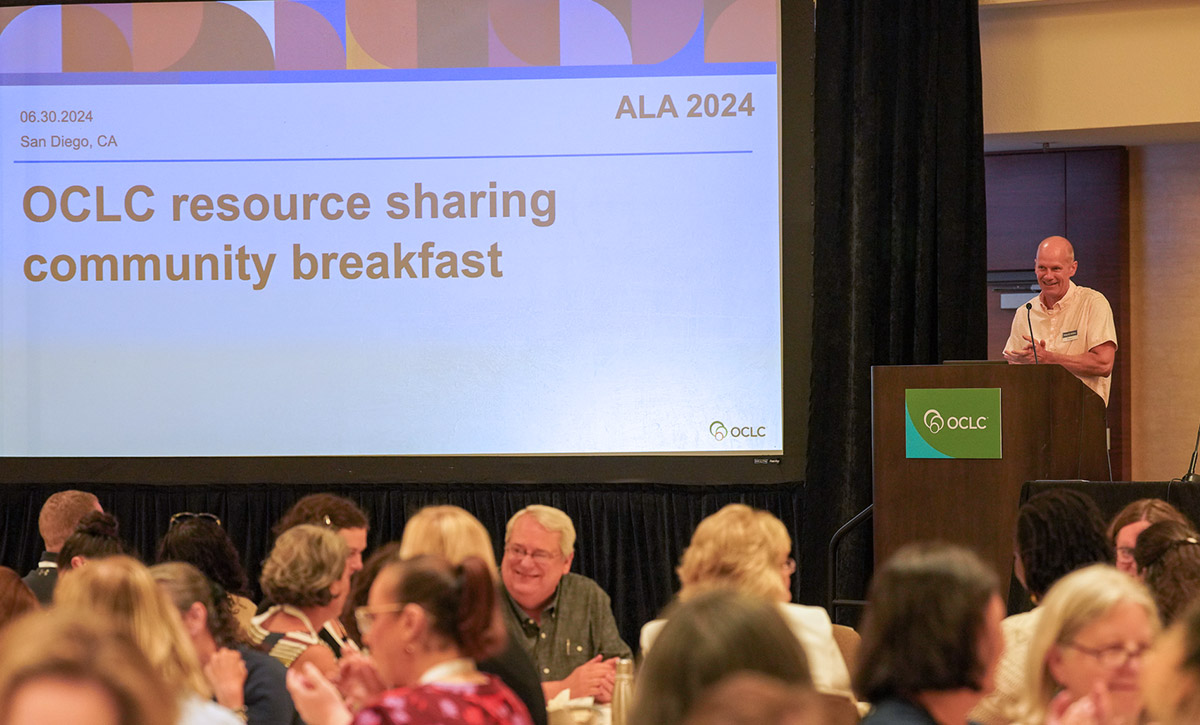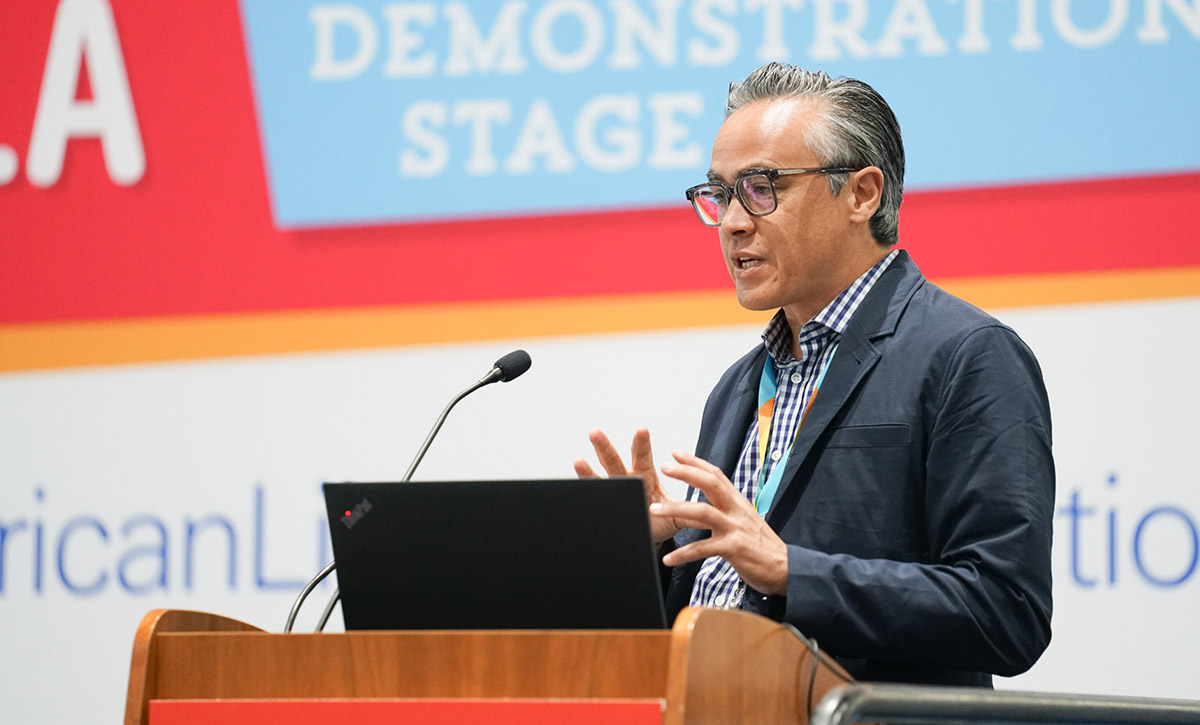Preparing for a linked data future
We advanced our linked data work to transform metadata management and put library resources in the knowledge streams that inform our everyday lives.
We added more than 400 million WorldCat Entities uniform resource identifiers (URIs) to WorldCat bibliographic records to integrate linked data into cataloging workflows and services already used by libraries.
We enhanced WorldShare® Record Manager, giving users the ability to search WorldCat Entities from within the application and subsequently add URIs to MARC records. This established a bridge between MARC data that libraries have used for decades and linked data that integrates across local systems and workflows and beyond.
We launched OCLC Meridian®, a WorldCat Entities linked data management tool, and a suite of APIs that enable entities creation when and where needed.


As part of our linked data strategy, we unlocked the power of the Dewey Decimal Classification® (DDC®) system by creating URIs for Dewey® numbers. This Dewey linked data provides subject classifications to Works entities in WorldCat Entities, creating a layer of new relationships for knowledge graphs that power discovery.
We released a position paper that articulates the value that linked data brings to libraries and information seekers alike. “Linked data: The future of library cataloging” adds context to discussion about linked data along with a blueprint to gradually build a new way to catalog library resources. It also explains the tools already available to help ease libraries into a more interconnected library catalog. This publication was our most downloaded paper of the year.
“This piece by @OCLC does a phenomenal job of outlining the benefits of linked data concisely and is very much worth the read.”
Michael Ragucci
John Wiley & Sons
Speed the digital transition for public libraries
We acquired cloudLibrary™, a platform that offers access to a wide variety of digital content through libraries. The acquisition supports public libraries in their efforts to successfully manage accelerated shifts to and the increasing demand for digital collections. We are in a unique position to provide cloudLibrary with a world-class technology infrastructure and a network of public libraries that serves well over 300 million people worldwide.


We conducted an innovative public library research study to identify similarities and differences between generations on the role of public libraries and the services that they provide to their communities. How do Boomers and Gen Z think differently about library services? What are barriers that might keep some Millennials away from the library? OCLC presented findings at two major US conferences and will publish a report in December 2024. Libraries can stay up to date on this research, informing strategic planning and programming that will align with local community needs and desires.
We continue to add new features to Wise®, including single identity management capabilities for Dutch libraries. We also continue to expand features for all Wise libraries in our fully web-based Wise Console. This includes new events management tools as well as enhanced capabilities in areas as diverse as holds management and improved support for local devices.
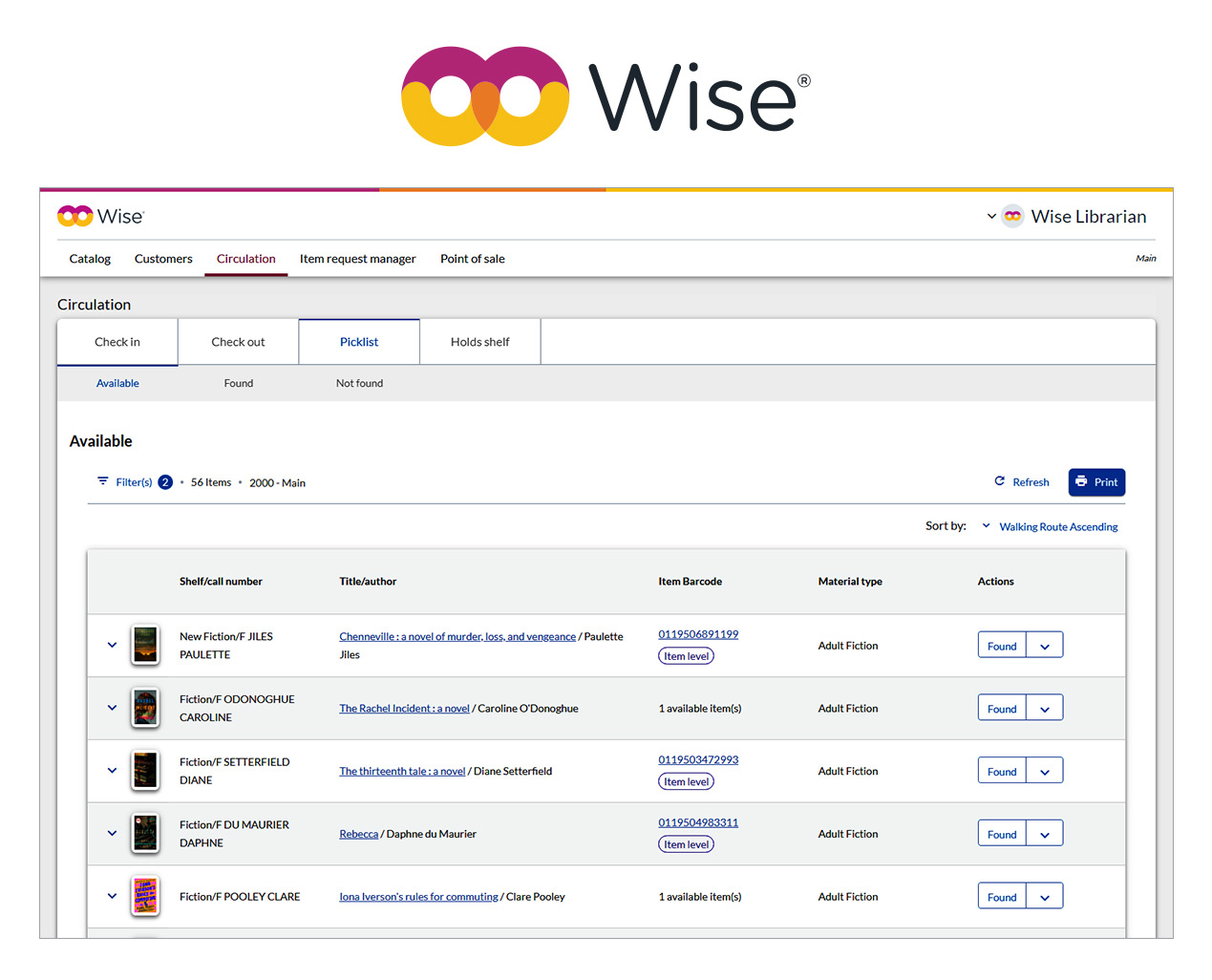
Reimagine resource sharing
Partnering with the Big Ten Academic Alliance, we developed a new state-of-the-art solution that reimagines resource sharing for library groups. All BTAA libraries are live on the new system, and we continue to work with BTAA to further develop this new consortia borrowing solution that expedites delivery of digital and print items to library users.
With OCLC Resource Sharing for Groups, participating libraries have all the tools needed to easily lend and borrow resources from group members. If a request can‘t be filled within the group, it seamlessly scales out to regional partners and to OCLC‘s global resource sharing network without any staff intervention. The solution also builds on smart fulfillment functionality for fast, predictable delivery based on local policies, group profiles, available resources, library relationships, and user needs—with first supplier fill rates at 90–95%.

“We are pleased with the successful migration to this new platform for UBorrow—not only for the parity and increased robustness it brings our communities of users today, but for the expanded options and possibilities we envision as we continue our pathway to uniting our separate collections into one, fully shared and fully networked.”
Maurice York
BTAA Director of Library Initiatives
Synthesize emerging insights to drive our future
As library staff and leaders navigate unknown, fast-paced change, OCLC Research is synthesizing emerging insights to produce research, resources, tools, and infrastructure to support libraries. In FY24, we published the following reports:
Building Research Data Management Capacity: Case Studies in Strategic Library Collaboration provides recommendations based on case studies that libraries can apply to make their own collaborations successful and sustainable. The report shares experiences and insights from the Texas Data Repository, Portage Network, and Data Curation Network to illuminate the challenges, opportunities, and considerations of building research data management (RDM) service capacity through collaboration. RDM is an increasingly vital strategic interest for academic libraries, and many collaborate with other libraries to scale resources and meet institutional RDM needs.


Redefining the library experience: Findings from the 2023 OCLC Global Council Survey, conducted jointly by OCLC Global Council, OCLC Research, and the OCLC Market Research team, explored themes such as community engagement, collaboration, and innovative programs that meet library users’ evolving needs and expectations. The results provide insight into ways that library leaders and workers expect changing library experiences to create more meaningful engagement and positive impacts.




